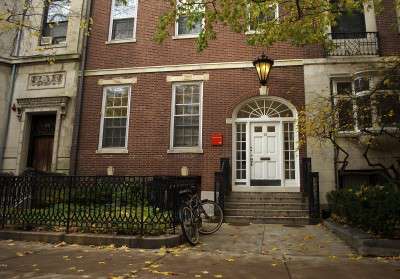
Following the death of former Boston Mayor Thomas Menino, who was also co-director of Boston University’s Initiative on Cities, the future of the program is uncertain, but members of the center will continue to work toward developing cities into vibrant centers of economic and cultural growth.
Graham Wilson , chair of the political science department and co-director of IoC, said several conferences and seminars are in the works, but discussions about new co-director have not taken place.
“That would be a decision for BU President [Robert] Brown to make and we have not had the chance to talk,” he said. “We did not want to have that conversation until after the funeral. I think it would be difficult to talk until we get past the grievances.”
Menino settled into his role as a political science professor of the practice and co-director of the IoC in February to work a long-term project to advance urban leadership, promote urban policy practice and inspire future leaders, The Daily Free Press reported on Feb. 4, 2014.
“It was a great experience and an honor to work with Mayor Menino,” Wilson said. “That’s something that I will remember for the rest of my life. I’ve learned things from him and had some very good laughs with him.”
IoC will co-host a conference Thursday with the Frederick S. Pardee Center for the Study of the Longer-Range Future titled “Sea Level Rise and the Future of Coastal Cities.” It will feature mayors and elected officials from around the world, including current Boston Mayor Martin Walsh, to talk about how coastal cities can adapt to rising sea levels.
“When he [Menino] passed, a lot of people asked us if this was still happening,” said Anthony Janetos , director of the Pardee Center. “We’ve been very consistent in saying yes, this is the right thing to do. The issue continues to be important, so we felt it was important to keep moving and to do this.”
A faculty seminar series, which began under the direction of Menino will continue with “The Inclusive City” on Dec. 4, Wilson said. The seminar will focus on how cities interact with all residents, regardless of ethnicity, citizenship or sexual preference
Katharine Lusk, executive director of the IoC, said the center would continue to work hard to expand on the goals that Menino put forth upon his arrival at BU.
“We remain focused on carrying on his legacy and carrying out the work he put in place,” she said in an email. “He is irreplaceable, but he made an indelible mark on the university in his time here. He worked tirelessly to build the Initiative into a program that was valuable to BU and valuable to cities and mayors.”
David Glick, a professor of political science who worked on the first IoC national mayors survey about leadership, said moving forward, there is much more research to be done.
“We have plans with the IoC in the coming months to keep sharing the results and generating interest in what we’ve done and what we’ve found in order to keep contributing to the dialogue amongst mayors, city researchers and policy makers,” he said.
Several students said despite IoC’s focus on cities, policy and leadership, they said its research can be interesting and useful to students.
Lauren Hobler , a graduate student in the School of Theology, said the research IoC does can help students know more about the city where they attend school.
“So much of what university students do affects Boston,” she said. “For students to understand the politics of the city they enter is very important, so the IoC is definitely something me and a lot of students would be interested in.”
Chloe Ellison , a senior in the College of Arts and Sciences, said she hopes more people will be aware about IoC in the months following Menino’s death.
“Obviously if people don’t know about it [the IoC] already, it could be used as a catalyst to push it in to the spotlight,” she said. “If people don’t know about it, then maybe now is a good time to put it in the spotlight, especially if it was something that was dear to his heart.”
Amanda Colon , a Sargent College of Health and Rehabilitation Sciences junior, said knowing more about city leadership and organization is relevant to students at BU.
“If more people knew about it, more people would be intrigued,” she said. “I know there’s a lot of people here from big cities, and we live in one now, so it’s a great initiative and more people should know about it.”




















































































































